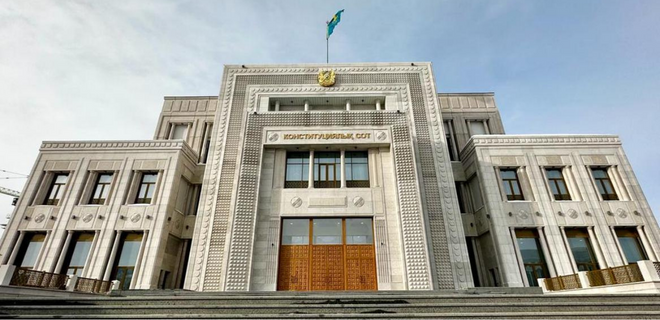ASTANA – The Constitutional Court of Kazakhstan received more than 5,300 appeals in 2023. Yet, 39% of them are related to disagreement with court decisions, which is not under its jurisdiction, reported the court’s press service on Jan. 9.

The Constitutional Court of Kazakhstan. Photo credit: gov.kz
Citizens’ appeals were mainly related to housing and labor relations, social protection, the bankruptcy of individuals, non-execution of judicial acts, execution of sentences, and access to information, among other topics. In 27% of cases, citizens appealed with a request to check the constitutionality of laws and other regulatory legal acts.
Nearly 4,900 appeals that did not meet the admissibility requirements were returned to citizens with an explanation of the reasons for the return and an indication of their right to re-apply.
Based on the results of a preliminary study of citizens’ appeals, judges of the Constitutional Court adopted 182 decisions. The court initiated 51 constitutional proceedings, 39 of which were completed in 2023, resulting in final regulatory decisions.
The Constitutional Court sent 31 recommendations to the government and other government agencies to improve legislation that had been implemented.
The court began its work on Jan. 1, 2023. The re-emergence of the court, which existed in Kazakhstan between 1993 and 1995, is an initiative voiced by President Kassym-Jomart Tokayev in his address to the nation on March 16, 2022, and was voted for at the national referendum on June 5, 2022.
It reconvened with a strong mandate to boost the protection of fundamental rights and freedoms in the country by allowing citizens to appeal directly to the court. Besides the citizens themselves, the Human Rights Ombudsperson and the Prosecutor General can also appeal directly to the court.
The court consists of 11 judges. Six are appointed by the Parliament (three judges each by the Mazhilis and the Senate), and four judges are appointed by the President. The chairperson of the court is appointed by the President with the consent of the Senate.

